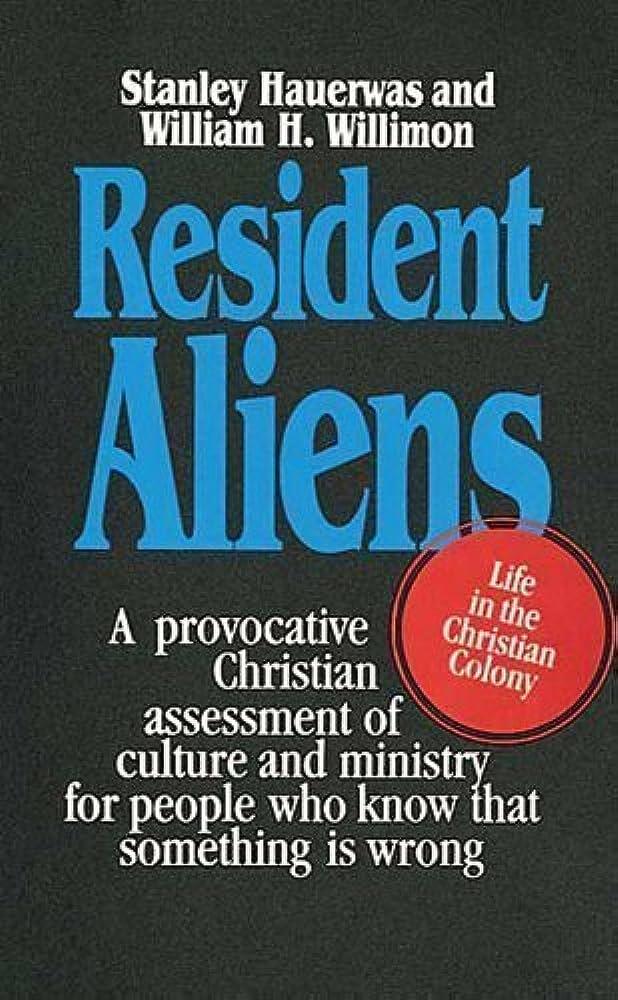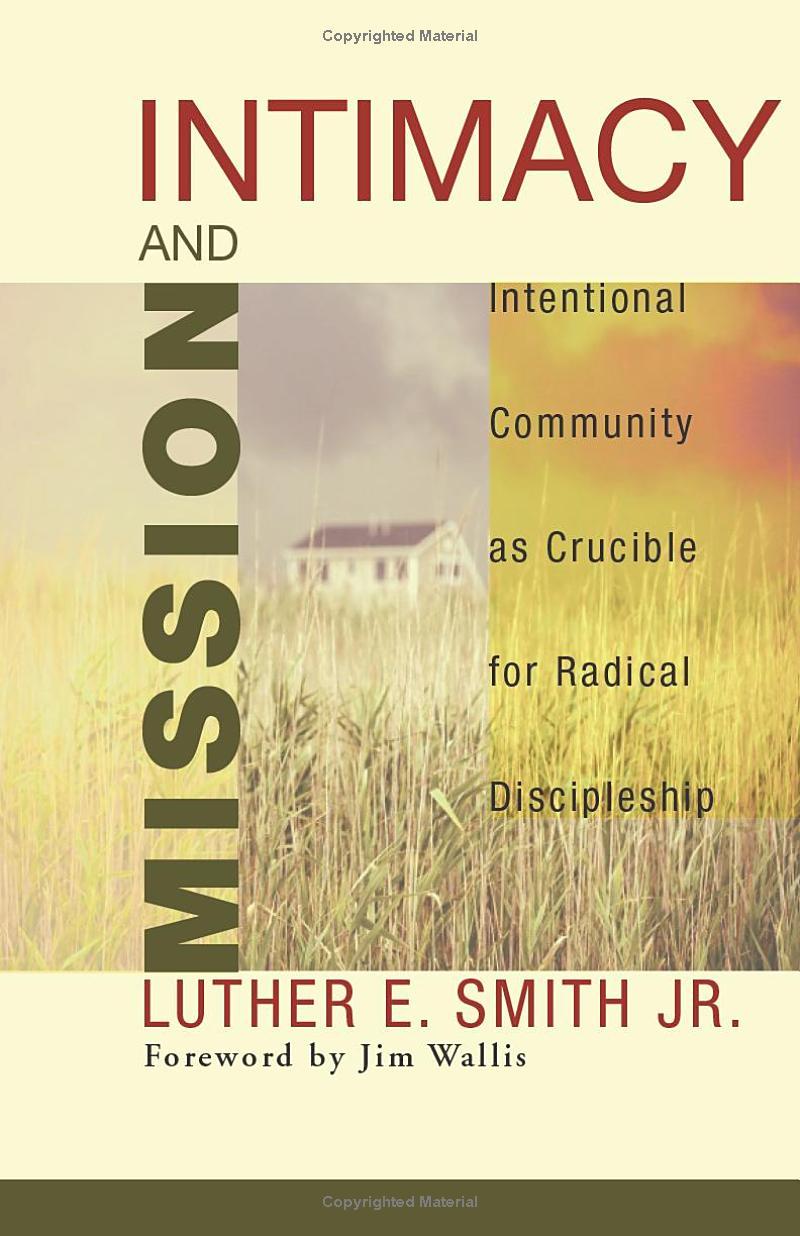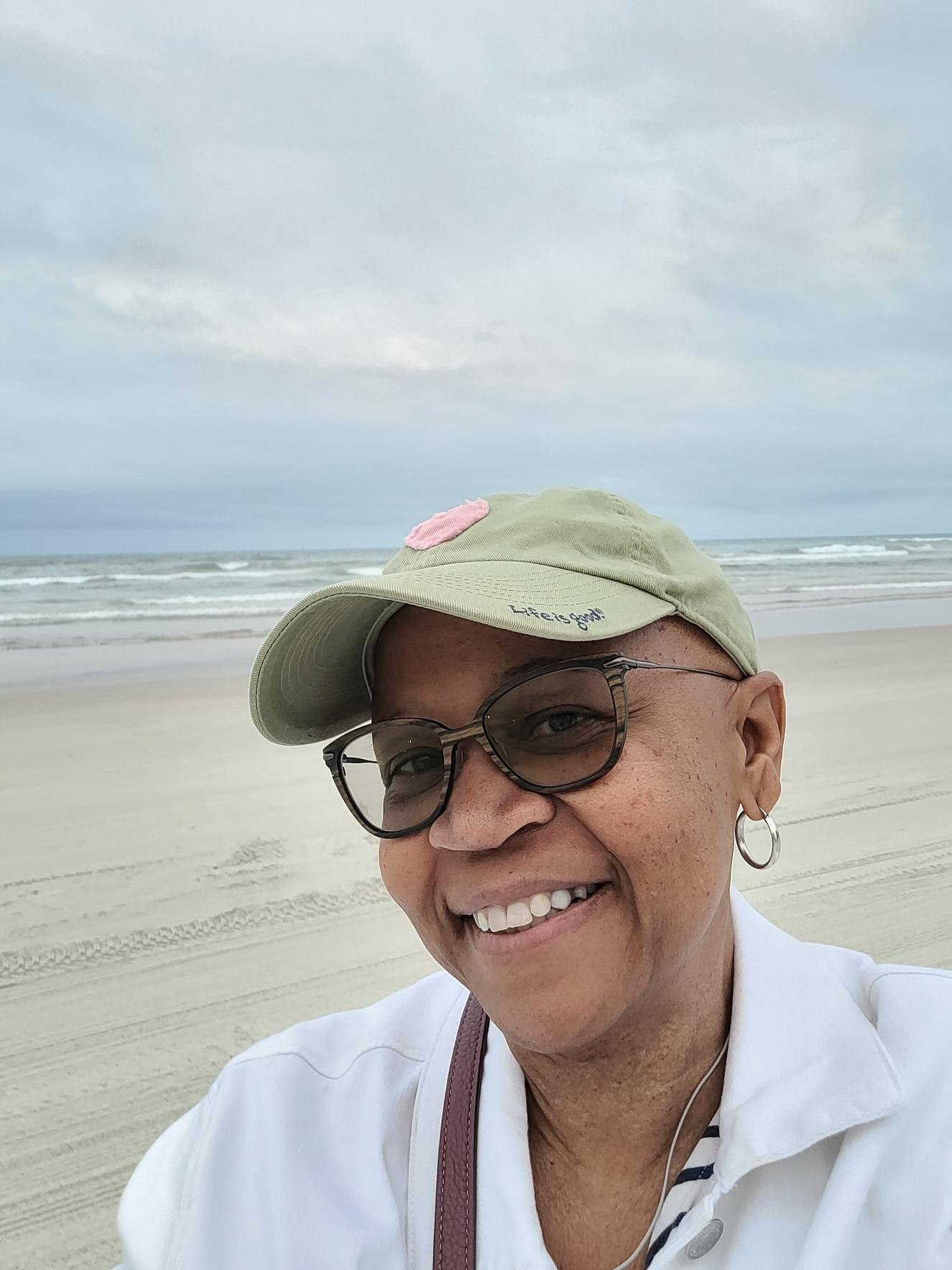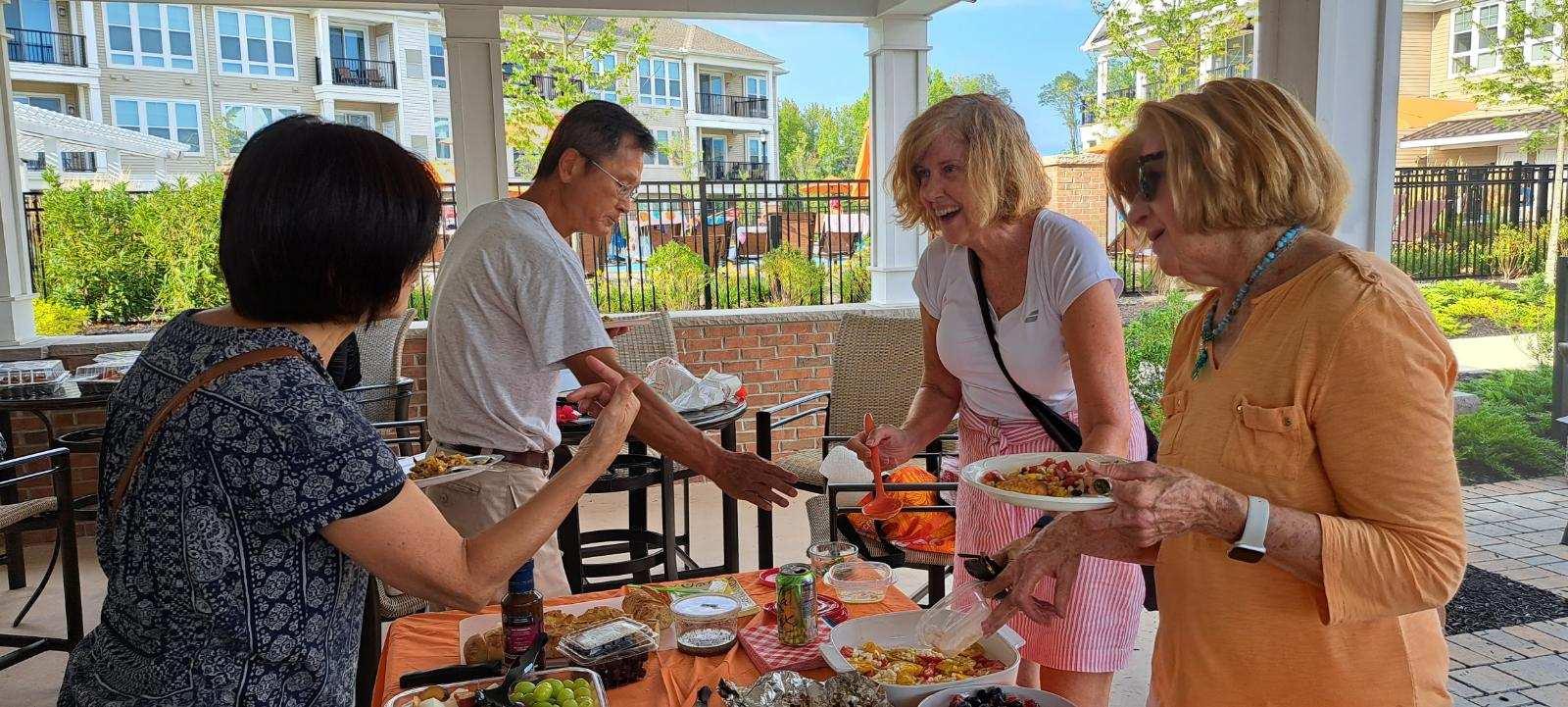AGAINST GRAIN the

LivingAgainsttheGrain
NotefromthePastor
All who believed were together and had all things in common; . . . Day by day, as they spent much time together in the temple, they broke bread at home and ate their food with glad and generous hearts, praising God and having the goodwill of all the people. Acts 2:43-47 (abbrev.)
AsafollowerofJesus,doyoueverfindthatthewayswespeak,whatwevalue, how we put our faith into action, maybe even the ways we move through the world, are not always in sync with the world around us? Even though many of us have lived most of our lives in a world where the Judeo-Christian tradition has been the dominant religious tradition in our culture, it doesn’t take long to realize that there are ways our world works and things our world values that aren’tinlinewithwhatJesustaughtandthewayJesusinvitedustolive.
This has been a challenge for followers of Jesus since the beginning! Jesus and his disciples often ran “against the grain” of the Jewish leadership and culture of the time, even though they were very much of that very Jewish culture. They frequently found themselves misunderstood, questioned, and evenrejectedbymanyoftheirday.

In the early centuries of the Christian church, followers of Jesus were persecuted. In the two millennia since, while the Church has not always gotten it right (think the Crusades or the Inquisition), there have always been ways that followers of Jesus have found it difficult to truly be the church in a world thatisn’torientedtothekin-domofGod,tolove,tograceandmercy.
Whilenoneofthisiseasy,Jesusdoesn’teasethistensionforpeople.Heseems toinvitehisfollowersmoredeeplyintoit,bynotonlyinvitingustofollow,butto follow him to the cross, toward suffering, into vulnerability. It seems that living “againstthegrain”ispartofwhatitistofollowJesus.
Thereissomebeautifulnewsinthemidstofthischallengethatcanoftenleave usfeelingawkwardandlonely.Wearenot,wearenever,followingJesusallby ourselves.Wehaveoneanother.
Thisiswhywegatherforworshipweekafterweek—torehearseandremember andproclaimwhoweareandwhowearecalledtobe.Thisiswhywegatherin small discipleship groups, to learn, to fellowship, to encourage, to listen, to grow,tocareforoneanotherandjourneytogether.Thefirstdisciplesdidthis they were a small group together. The early church we read about in Acts and through the New Testament did this. The Wesleyan movement’s hallmark was meeting in small groups together weekly. We are not, we are never, alone as f ll fJ
I wonder what your experience of this is. When have you felt that out-of-sync, awkward,lonelyfeelingofliving“againstthegrain”inthisworldasafollowerof Jesus?Whenhaveyoufoundyourselfcomforted,encouraged,“athome”inthe companyofasmallgroupofotherJesus-followers?
ThiseditionofourNewsletterisallaboutthesematters.Ihopeyou’lltakejoyin seeing the ways that we are in this together. I hope you’ll also consider where God is calling you to commit anew to following Jesus and to this beloved PUMC/KUMCcommunity.Perhapsit’storenewyourworshiprhythms.Ortojoin adiscipleshipgroup.Mightyouhavesomeoneinmindyou’dliketoinvitetobe part of this journey with you. Maybe it’s to find a way to share your gifts, time, treasuretoblessandstrengthenthiscommunityandyourowndiscipleship.

Withloveandpeace,

We gather in small discipleship groups to learn, to fellowship, to encourage, to listen, to grow, to care for one another and journey together.
DiscipleshipGroups:TheHeartofWesley’sMovement
byEmeliaTimpoDiscipleship groups have been an integral part oftheMethodisttraditionfromthetimeofJohn Wesley. John Wesley believed that these meetings recaptured several principles of New Testament Christianity, including personal growth within the context of intimate fellowship, promoting accountable discipleship and spiritual stewardship, supporting each other in our personal faith journeys, and creating a sense of community and a safe environment for sharing and openness in our individual life journeys. These principles were applicable then and still hold true to us today asUnitedMethodists.
At the heart of Wesley’s movement was a method—a system of discipleship and accountability. To understand how these discipleship groups impact our lives, I interviewed Susan Davelman, who has led the Contemporary Issues Groupinrecentyears.Anexcerptoftheinterviewiscopiedbelow:

Emelia:Whatdoesdiscipleshipmeantoyou,Susan?
Susan: To me, it means community—the basis of our lives, our community connections.AsIhavegottenolder,Irealizethatiswhatitisallabout.

Emelia:Youhaveledagroupandbeenpartofdifferentgroupsovertheyears. Whathavebeenyourexperiences?
Susan: In the Contemporary Issues group, we are constantly trying to answer this question: What does it mean to be a Christian in this challenging world? There are so many problemswearefacinginournation—climate change, racial injustice, income inequality. In Contemporary Issues, we read books to understandtheseissuesbetter.
For climate change, we read Katherine Hayhoe’s Saving Us. To understand racial injustice, we read Isabella Wilkerson’s Caste and Bryan Stevenson’s Just Mercy. I learned a lot, not only from reading these books but also from our discussions with the group and learning about their experiences and perspectives. And, whether we are discussing climate change, racial injustice, oranythingelse,wealwayscometothesameconclusionthatweareallcalled todoourpart,howeversmall,totrytomakethingsbetter.
BeingpartofoursmallgrouphashelpedmethinkandreflectdeeperonwhatI am called to do as a Christian. We have gotten to know each other very closely,andIreallyadmireeveryoneintheroom.
Emelia:Wonderful.Howbigofagroupisit?
Susan: If everyone comes, that would be about eight people. But then some weeks, we 'vehadonlythree.Mostweeks,wehavefive orsix.
Emelia: What makes the group work? Is it the contentofthematerialyouarereading?
Susan:Ithinkitisthepeopleandthefactthattheyhavebeenwillingtoshare. They're willing to share their lives, they're willing to share their opinions. We did notknoweachotherinthebeginning,butthroughmeetingeachSundayforan hour,youdogettoknoweachother.ItreallyhelpsmeonmyChristianwalk.
Emelia:SowhydoyouseethesediscipleshipgroupsasimportanttoPUMC?
Susan: They let people make connections with each other and get to know people better. When you get to meet new people and become better acquainted with people, you really connect with each other. I think people will findit'snotashardandit'snotasdauntingastheythinkitwillbe.
And it's not necessarily always focused on faith. It's also about the community at large and the world in general. There are times that you don't even discuss the book. You discuss whatever had happened that week. You should have heardusin2016,aftertheelection.
“We are all called to do our part, however small, to try to make things better.”
Emelia: You’ve been leading the Contemporary Issues Group up to now. But you ' ve been in other groups, right? How did you find them and what kept you going?
Susan: I was part of Don Brash’s Sunday morning group. I was going to that every Sunday, and I liked it. I thought it was excellent. There were 20 people in it, so a much bigger group, and I just sat and listened. I found Don's group fascinating.Hewasreallygreat.HeopenedmyeyestowhatChristianitycould be.
I was brought up Catholic. I still remember my catechism. When I went to catechismonMondayafternoons,wehadahundredquestions,andwehadto memorize the answers from Congress. It was all rote: Who is God? God is a supreme being who loves us. It was very cut and dry compared to the Methodist Church. I came here because Lou and I were getting married, and we wanted to join a church together. I was intrigued by the conversations, and it opened up a new world about what Christianity could be. There is so much learning,anditisnicetomeetpeopleinchurchandseethemalittlebitmore.

In my current group, I talk each week to everyone about being a Christian in our lives. When you talk about it each week, it becomes more real. You are morelikelytoimplementsomething.Iknowthegrouphelpsmegrow.
Emelia: That is exactly what these groups are meant to be for all of us. I took a wonderful course this past spring on accountable discipleship with our conference. It was a group of 22. We did it on Zoom, and the participants were from other UMC churches across our conference. One of the key themes was discipleship groups. It touched on the last point you raised: that when you are on this faith journey, you are on this quest to learn andgrow.
Onyourown,youbelievethatyouaredoingthebestyoucan.Butit'snoteasy. However,whenyouhaveagroupthatyoumeetwithandsharewithandlearn from, it helps with your faith commitments. It helps you become accountable tothegoalsyousetonyourowndiscipleshipjourney.
Everybody has their own different journeys. But you become a group that not only holds each other accountable but also supports each other. You guide each other and shape each other’s thinking in ways that, on your own, you are notgoingtobeabletodo.
That is the goal we set for ourselves in these groups. It’s not just about reading the Bible every day—it's helping all of us to be in a community that we grow and learn with as we go on our individual discipleship journeys.
Thanks so much, Susan, for sharing your personal insightswithus.

DiscipleshipinSmallGroups
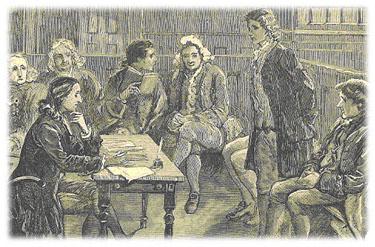 byBarbaraFox
byBarbaraFox
“Peopleneedpeople,”saidonelong-timememberofPrincetonUMC,explaining why Methodists believe that being part of Wesleyan small groups helps spiritualgrowth.The“ClassMeeting”tradition,establishedbyJohnWesley,has morphed into today’s concept of small groups, where a dozen or so people meetregularly.Rev.KevinWatsonsaysthatinthesegroups,“everypersonhas ameaningfulconnectionandanappropriateplacetobedeeplyknown.”
In Wesleyan Class Meetings, a dozen people studied, prayed, and had fellowship together. They were asked to answer the question “How does your soul prosper, ” which in current terms might mean “How is your spiritual life?” Today’ssmallgroupshelptoday’scongregationsfulfillthepledgewesaywhen wewelcomenewmembers:
WithGod'shelpwewillproclaimthegoodnews andliveaccordingtotheexampleofChrist. Wewillsurroundthesepersons withacommunityofloveandforgiveness, thattheymaygrowintheirtrustofGod, andbefoundfaithfulintheirservicetoothers.
Wewillprayforthem, thattheymaybetruedisciples whowalkinthewaythatleadstolife.
Princeton UMC offers two kinds of discipleship groups: Growth groups and Seasonal groups. Both of these kinds of discipleship groups are centered around seeking God together, caring for one another, and growing deeper in our faith. This happens through meeting weekly, focusing on curriculum that is basedontheworshipseries,withthesamegroupofdisciples.
Growth groups are nine-month-long groups, from September through May. Pastor Tayler and our Discipleship Board believe that lasting transformation happens in deeper relationships, which requires us to invest more of our time. This might sound daunting to some, but we are asking every single worshiper at Princeton UMC to prayerfully consider this life-giving discipleship opportunity.
But these long-term discipleship opportunities have thrived at PUMC before! Bruce Henry recalls a group that was supposed to be a book study, “but turned out to be so much more about caring for one another. At the first meeting, we started with joys and concerns and never got to the book study. It self-evolved. One person had justlostherjob.Anotherwasstruggling with a serious diagnosis. The whole eveningwasspentsharing,withoutany direction.Itjusthappened.”
We know not everyone can invest nine months into a discipleship group, at least not yet. That’s where Seasonal groups come in. Led by Pastor Tayler and Jazlyn Cruz (a KUMC member), seasonal groups will be shorter-term discipleship opportunities, meeting in the fall, Advent, and Lent seasons. These are much like what we have seen at our church before and are a great way to “dip your toe” into discipleshipformation.

Small group provides a safe intimacy, where people feel comfortable sharing their problems— and their doubts and fears.”
Of course, we also have our wonderful groups that continue throughout the year. Musical ensembles like our handbell and chancel choirs offer opportunities to get to know each other and share joys and concerns. Kathy Burt recalls joining a 20-person choir in Arizona: “Among those friends, a handful had gone through a divorce and were supportive while I was in the process of learning to be suddenly single. Singing faith-based music was a reminderofthewonderfulGodweknow.Sharingpowerfulspiritualmusicthree timesaweekstrengthenedmyspiritthroughoutthefollowingweek.”

Other long-term groups include the Contemporary Issues Class and Monday Morning Bible Study. Along the way, the participants offer each other support. “The Contemporary Issues class has been a unique opportunity for me to discuss serious topics with others in our church community,” says Karen Longo-Baldwin.
“The class chooses books on issues such as poverty, race and class, and the environmentanddiscussestheminaChristianperspective.Theconversations haveallowedmetolearnfromothers'perspectives,deepeningmyown.Ithas been a unique opportunity to get to know PUMC people that I would not have known otherwise. It has given me the chance to meet and grow with them in knowledge,understanding,andfaith.”
“ContemporaryIssuesisacaring,welcoming group, ”agreesCarterCunningham.“Everyonein thegroupaddsvalue.”Carteralsoparticipatedin theLentenStudyonforgiveness.“Everyoneinthe meetingseemedtobeinadifferentplaceintheir lifejourney.Theideasofforgiveness,aswritten aboutinthebook,allowedeveryonetoberight wheretheywereintheirpersonaljourneys.Italso taughtthestagesoftheforgivenessprocess. ThiswasanamazingLentenjourney,which openedintoagloriousEasterSunday.”
Carter also participates remotely with the Monday Morning Group (MMG), which meets on Zoom to review the Bible passages and share ideas and opinions. Another long-time MMG member, Jeanette Klink, emphasizes that fellowship and prayer are important components of any small group. “Monday Morning Group has had a tremendous impact on my life and spiritual growth especially when I was going through cancer treatments. I never felt alone and the members' powerful prayers got me through this difficult time. It is a great way to start the week!” She finds that it leads to discipleship opportunities: “I try to never miss an opportunity to share with others the wisdom and knowledgeIhavereceivedfromthisveryspecialgroupovertheyears.”
In the recent past, lay leaders have established these kinds of groups for specificneeds.WhenshefirstmovedtotheUnitedStates,KarinBrouwerco-led a PUMC group geared for newcomers. For Love Lives On, the group for widows and widowers, Laverna Albury is the lay leader. Lula Crawford mentors the DivorceSupportGroup.

Our United Methodist mission: “to make disciples of Jesus Christ for the transformationoftheworld.”Wehelpeach other to “know Jesus and be in an active and transformative relationship with the Triune God.” But participating does not mean you can’t be a skeptic! One longtime member remembers how she valued the small group that she participated in because it was a place where she could express her doubts. “In my small group, I was able to share my unorthodox views andbeaccepted.”
“An effective small group is much more about meeting needs than about studying particular topics,” says Bruce. “It provides a safe intimacy, where people feel comfortable about sharing their problems—and their doubts and fears.” We all hope to grow to be better disciples of Christ, but even when we gotochurchandreadtheBible,it’shardtodoitalone.Inadiscipleshipgroup, wefindsupport.

